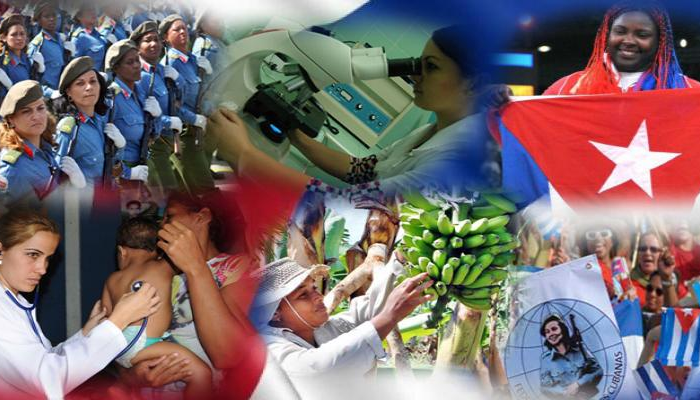
Gender equality and women's empowerment. Image: archive/MC
By María Josefina Arce
March 8 has become a day of struggle for women in defense of their rights, to make visible the gender inequality that still persists in all regions of the world, especially in Latin America and the Caribbean, and is manifested in various areas of life.
Every day, women face situations of violence, abuse and unequal treatment both at home and in the workplace. They are also denied the opportunity to learn and earn a decent income.
According to the UN, gender equality, one of the Sustainable Development Goals for 2030, is far from becoming a reality and may take up to 300 years.
Women represent almost 50% of the world's population, and are the sector most affected by poverty. To give an idea of the complex picture, in 2022, some 383 million women and girls were living in poverty.
A recent report by the ILO, the International Labor Organization, points out that gender imbalances in access to employment and working conditions are greater than previously thought.
The report states that 15% of women of working age worldwide do not have an occupation and highlights that personal and family responsibilities disproportionately affect this segment of the population.
The advent of COVID 19 widened the gap. The measures put in place to prevent its spread led to an increase in the burden of unpaid domestic and care work, and therefore, an exit from the labor market, thus deepening, experts point out, the feminization of poverty.
Currently, for example, on average for Latin America and the Caribbean, poverty among women exceeds that of men by 3.4 percentage points. But although the pandemic was a trigger, this situation is the result of the neoliberal model implemented in many countries of the region.
Another problem that still strongly affects women and girls, and which the global health emergency showed in all its crudeness, was the violence to which this sector is subjected.
To a greater or lesser extent, this situation is present throughout the world, with Latin America and the Caribbean being one of the hardest hit regions, where, before the pandemic, there was already a high prevalence of this phenomenon.
The Observatory for Gender Equality in Latin America and the Caribbean stated that in 2021 nearly 4,500 women were murdered in the region for gender-related reasons.
As stated by UN Secretary General António Guterres, women's rights are abused, threatened and the discreet advances achieved over decades are vanishing before our eyes.
And gender justice is urgent, because in addition to guaranteeing fundamental human rights to all, it is a key element in achieving fairer, more equitable societies.

